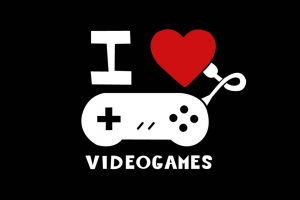“Stop playing those video games Aaron, they will rot your brain. Starring at that screen that much is going to damage your eyes.” My mother, just as many others, believed that video games were entirely useless and detrimental to a developing child’s mind. I have been a gamer for all of my memorable life. Pretty most people I meet, who are not at least minor gamers themselves, find video games to be a waste of time and pointless. With over 155 million Americans gaming regularly, and gaming trends increasing in countries all over the world, research into the effects of gaming have become a popular study.
Video games have advanced significantly in the past 20 years. There are so many different types of games with varying complexities, publishers, and gameplay. One of the most popular genres of games is action video games which include popular examples such as Call of Duty, Grand Theft Auto, Battlefield, Halo, and many more. Most of these action video games are ones that many concerned parents believe promote violent behavior. This notion that action or violent video games promote violent behavior has been disproven by many studies. These video games do have an effect on people, just not in the negative way that many people believe.
Researchers such as Matthew Dye, Shawn Green, and Daphne Bavelier wanted to examine the effects that action video games had on human cognition. Their study examined how action video games influence perceptual processing. They found that (action) video games provided an efficient training regimen that increased the speed of perceptual reactions in participants without decreasing accuracy. Not only does gaming seem to increase perceptual processing, but a meta-analysis of action video games found that they can also enhance top-down attention and spatial cognition. It was also found that regular gamers had superior multitasking abilities than the average person, even those that claimed to be excellent multitaskers.
It is amazing to know that I have been working hard to improving my cognition and not just wasting my time playing video games. A month after Call of Duty: Balck Op’s release the game had been played the equivalent of 68,000 years worldwide. That amount of time is shocking, and its even more shocking to think what a game designed specifically to increase cognitive function could achieve. Although not all games are created equal in their ability to positively influences cognition, researchers have begun to try to isolate what aspects of these video games are resulting in these positive effects. Daphne Bavelier hopes that by teaming up with entertainment-media experts, researchers can try and find a way to use video games to better understand the brain functions utilized during gameplay. Then, researchers can use that knowledge to provide new and more engaging games that can be used to train and rehabilitate cognitive functions in children, adults, and patients. This positive effect that video games have, and how it could be utilized in the future is explained by Daphne Bavelier in the TED Talk included below.

By Aaron Reiss




